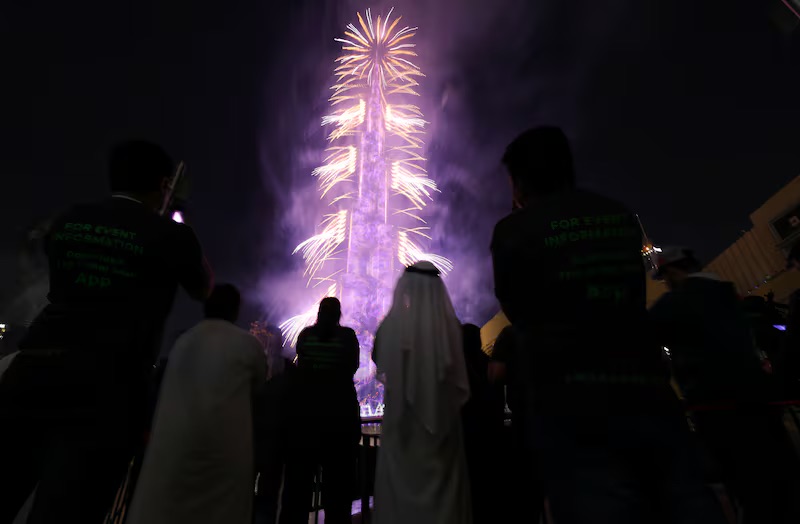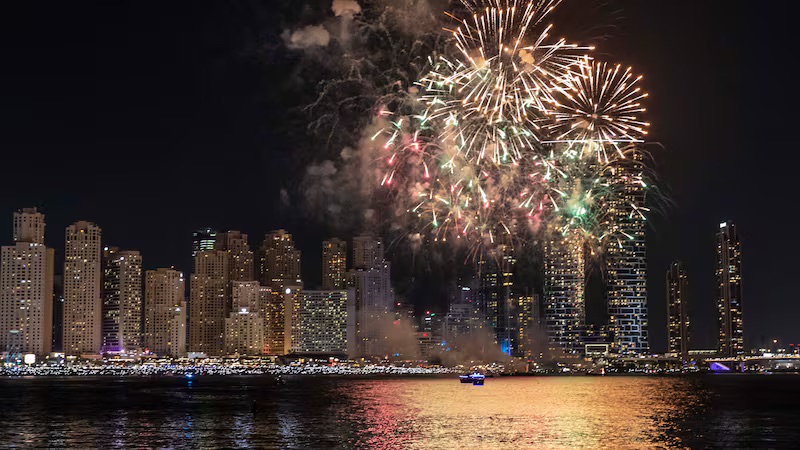New Year’s Eve greetings in the Arabic language are both casual and spiritual. Antonie Robertson / The National
As we get closer to New Year’s Eve, it’s time for a refresher on seasonal greetings you can deliver personally, through text messages or e-cards.
Fortunately, the Arabic language is rich and varied enough to encompass diverse phrases focusing on everything from good cheer to family and business dealings. These expressions also provide insight into the character of the region, where spirituality and family are at the core of everyday life.
Here are seven Arabic greetings you can use to wish someone a Happy New Year.
1. Kullu aa’min wa antum bikhair
Translated to “wishing you blessings throughout the year,” “kullu aa’min wa antum bikhair” is the most common phrase used when the clock ticks past midnight. The reply here is “wa antum bikhair”, which means “may you also be blessed”.
2. Kol sana wa anta tayeb
You don’t get a more Egyptian salutation than this.
Essentially meaning: “happy birthday to you,” the term is wonderfully malleable and can be used in most instances when you want to congratulate or wish someone all the best. Like many Arabic greetings, the reply is often repeating the last two words of the saying. In this case, it’s “wa enta tayeb”, which basically means “and to you as well”.

3. Sana helwa
Meaning “sweet year”, it is a favourite Egyptian phrase adaptable to many occasions.
The word helwa, meaning sweet, or its variant helou, is used to express pleasant and happy emotions. Since it’s a greeting that doesn’t have classical Arabic or religious connotations, it is viewed as one of the more casual greetings that can also be used to commemorate birthdays or anniversaries.
4. Ahlan bil sana al jadeeda
Rooted in the Arab world’s vaunted tradition of hospitality, the expression literally translates to “welcome to the new year”. It also begins with ahlan, one of the most common everyday Arabic salutations, which derives from the root word ahl, meaning family. Altogether, it’s a family-friendly welcome befitting the communal nature of the celebrations.
5. Sanat khair wa barakat
A lilting greeting with subtle spiritual dimensions, it translates to “a year of goodness and blessings”. The key words here are khair (goodness), an expansive term covering all aspects of life, and barakat, which hopes you are bestowed with divinely inspired favours and spiritual growth.
6. Ayyamukum sa’eeda
Short and sweet, this is a warm and welcome meaning, “May your days be happy.” While often heard during Eid, it is versatile enough to be used in most festive social gatherings, such as New Year’s Eve, birthdays and weddings.
7. Ya rab tkoun sanat khair
Meaning, “Oh Lord, may it be a year of goodness,” this is a heartfelt greeting fit for our challenging times. Also functioning as an emotive prayer, it is a weighty salutation that ultimately hopes for not just a better year, but one where we are also mindful enough to understand its blessings. A classic reply would simply be “insha’Allah,” meaning “if God wishes”.















